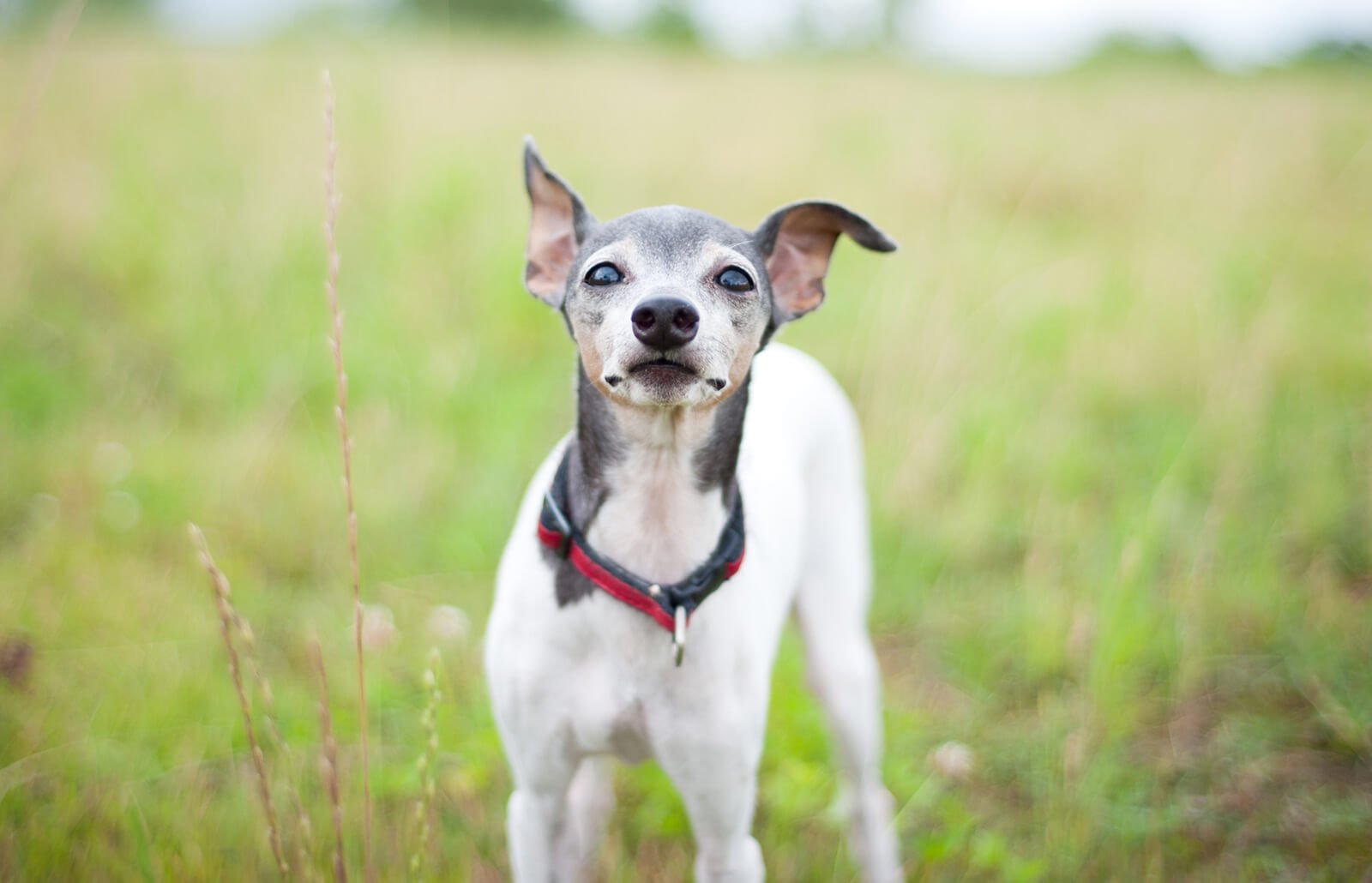Are you considering getting a Japanese Terrier breed dog as a pet? If so, you’re in for a treat. These small dogs are known for their lively and affectionate personalities. They are eager to please and make great companions for families, couples, and individuals alike. Japanese Terriers are intelligent and easy to train, making them an excellent choice for first-time dog owners. In this article, we’ll take a closer look at the Japanese Terrier breed and what you can expect if you decide to welcome one into your home.
Breed Category: Toy
Country of Origin: Japan
Average Size:30-33 cm
Average Weight:2-4 kg
Average Life Span: 12-15 years
Grooming Requirements: Low
Exercise Requirements:Moderate
History and Origin
The Japanese Terrier is a small breed of dog that originated in Japan. It is believed that the breed was developed in the 17th century by crossing native Japanese dogs with European breeds such as the Smooth Fox Terrier and the Manchester Terrier. The breed was originally used for hunting small game, such as rats and mice, and for guarding homes and farms.
The Japanese Terrier was first recognized as a breed in Japan in 1930, and it was later recognized by the United Kennel Club in the United States in 2006. Despite its long history in Japan, the breed is still relatively unknown outside of its home country.
The Japanese Terrier is a small dog, standing at around 12-15 inches tall and weighing between 6-9 pounds. It has a short, smooth coat that is usually black and white or brown and white in color. The breed is known for its lively and affectionate personality, and it makes a great companion for families and individuals alike.
In Japan, the Japanese Terrier is still used for hunting and guarding, but it is also a popular pet. The breed is known for its loyalty and intelligence, and it is often used as a therapy dog in hospitals and nursing homes.
Despite its popularity in Japan, the Japanese Terrier is still a relatively rare breed outside of its home country. It is not recognized by the American Kennel Club, and it is only recognized by a handful of other kennel clubs around the world. However, the breed’s popularity is slowly growing, and it is becoming more well-known in other parts of the world.
In conclusion, the Japanese Terrier is a small but mighty breed that has a long history in Japan. It was originally developed for hunting and guarding, but it has since become a beloved pet and therapy dog. While it is still relatively unknown outside of Japan, its popularity is slowly growing, and it is sure to win the hearts of dog lovers around the world.
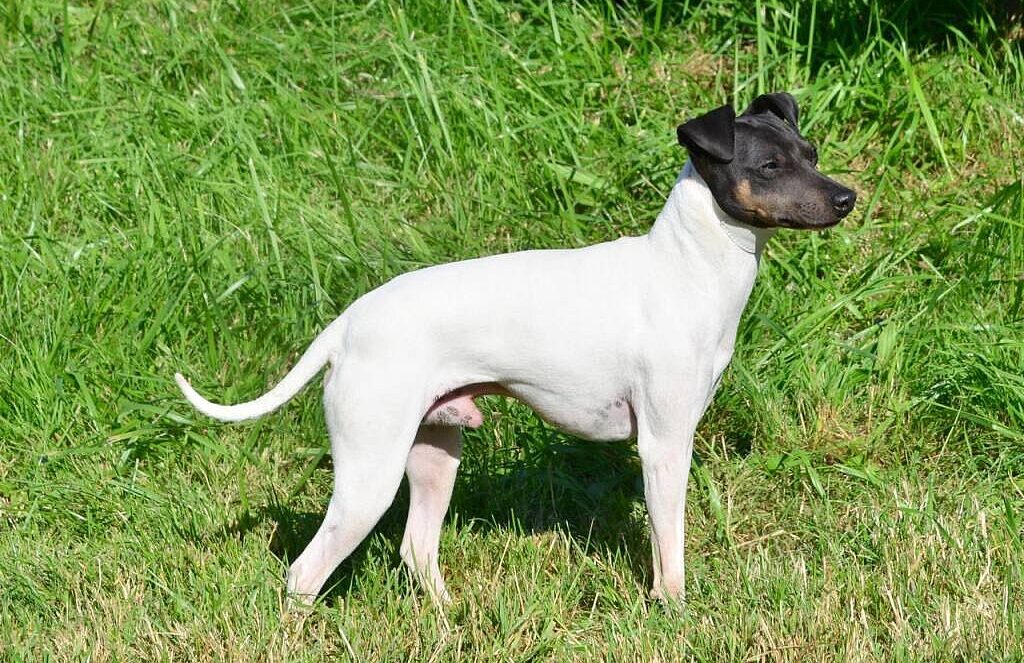
Size and Breed Category
The Japanese Terrier is a small breed of dog that originated in Japan. They are classified as a toy breed and typically weigh between 2.5 and 4.5 kilograms. They have a short, smooth coat that is predominantly white with black or tan markings. Their ears are small and pointed, and their tails are usually docked. Despite their small size, Japanese Terriers are known for their agility and athleticism. They are also highly intelligent and trainable, making them popular as both companion animals and show dogs.
In terms of breed category, the Japanese Terrier is classified as a companion dog. They are known for their affectionate and loyal nature, and they thrive on human companionship. They are also highly adaptable and can live in a variety of environments, from small apartments to larger homes with yards. However, they do require regular exercise and mental stimulation to prevent boredom and destructive behavior. Overall, the Japanese Terrier is a charming and delightful breed that makes a wonderful addition to any household.
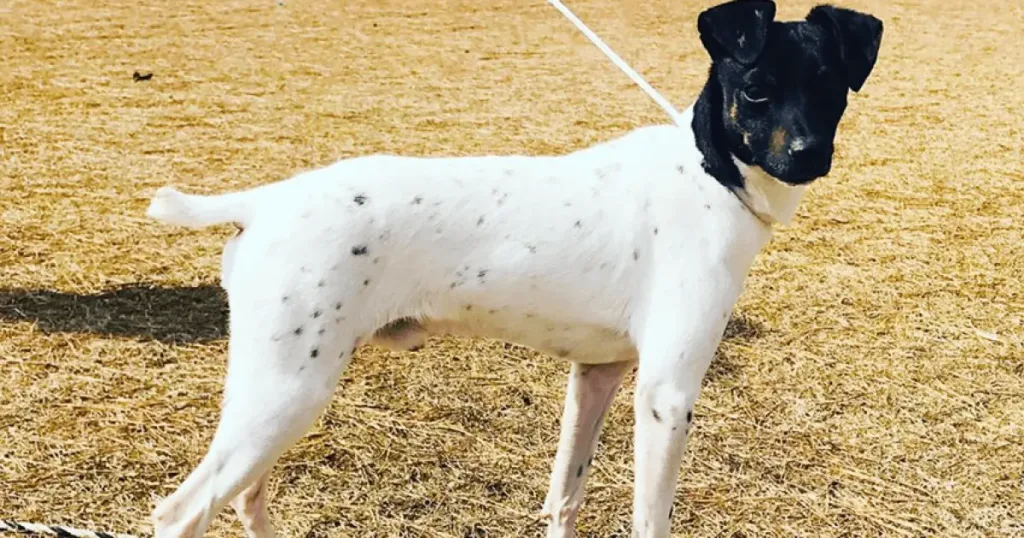
Fur Length and Colour
The fur of the Japanese Terrier is short and smooth, with a glossy texture that gives it a sleek appearance. The fur is dense and lies close to the body, providing good insulation against the cold. The fur is usually black and white, with the black being the dominant colour. The black fur is usually found on the head, ears, and back, while the white fur is found on the chest, belly, and legs. The fur on the tail is usually black with a white tip. The black and white colouration of the fur gives the Japanese Terrier a distinctive and attractive appearance.
The length of the fur on the Japanese Terrier is relatively short, with the fur on the body being shorter than the fur on the head and ears. The fur on the head and ears is longer and more dense, giving the dog a distinctive look. The fur on the body is short and smooth, with a glossy texture that gives it a sleek appearance. The fur is easy to maintain and requires minimal grooming, making it an ideal choice for those who want a low-maintenance pet. The short fur also makes the Japanese Terrier well-suited to warmer climates, as it does not trap heat and cause the dog to overheat.
Termperament and Trainability
Japanese Terriers are known for their lively and energetic temperament. They are highly active and require plenty of exercise to keep them happy and healthy. These dogs are also very intelligent and quick learners, making them easy to train. However, they can be stubborn at times and may require a firm hand when it comes to obedience training. Japanese Terriers are also very social and love to be around people, making them great family pets. They are affectionate and loyal, and will often form strong bonds with their owners.
When it comes to trainability, Japanese Terriers are known for their ability to learn quickly. They are highly intelligent and respond well to positive reinforcement training methods. However, they can be stubborn at times and may require a bit of patience and persistence when it comes to obedience training. These dogs are also very sensitive and can become anxious or stressed if they feel they are not meeting their owner’s expectations. It is important to provide plenty of positive reinforcement and praise during training sessions to keep them motivated and engaged. Overall, Japanese Terriers are highly trainable and make great companions for those who are willing to put in the time and effort to train them properly.
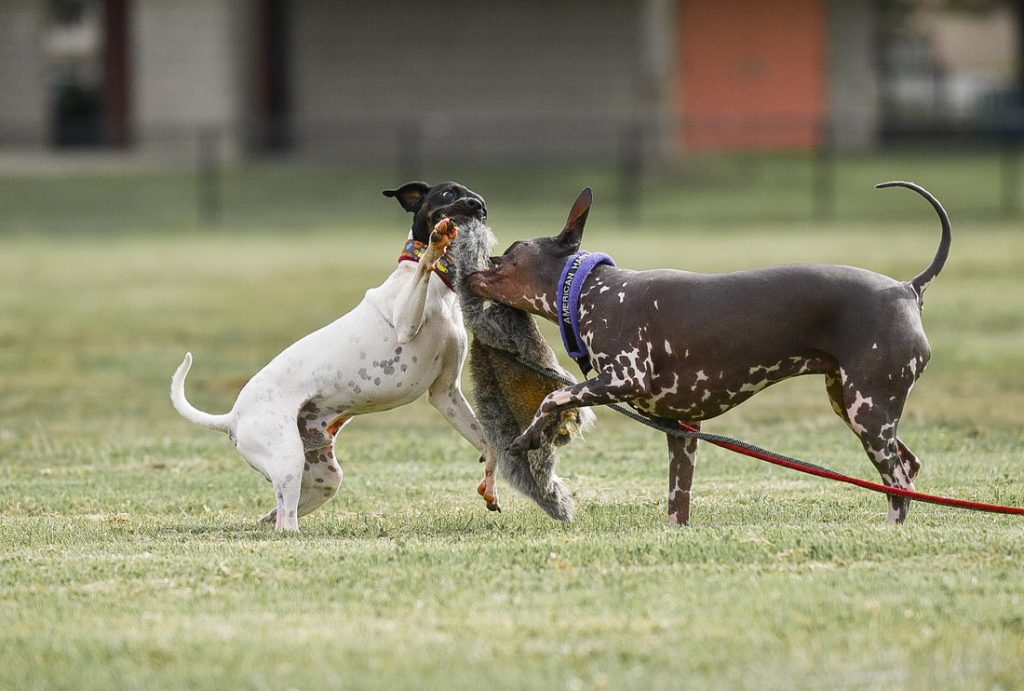
Known Health Conditions
Japanese Terriers are prone to certain health conditions that owners should be aware of. One of the most common issues is patellar luxation, which occurs when the kneecap dislocates from its normal position. This can cause pain, limping, and difficulty walking. In severe cases, surgery may be necessary to correct the problem. Another condition that Japanese Terriers may develop is Legg-Calve-Perthes disease, which affects the hip joint. This condition causes the head of the femur to deteriorate, leading to pain and difficulty walking. Treatment may involve surgery or medication to manage pain and inflammation.
In addition to these orthopedic issues, Japanese Terriers may also be prone to allergies. This can manifest as skin irritation, itching, and hair loss. Allergies can be caused by a variety of factors, including food, pollen, and dust. Treatment may involve identifying and avoiding the allergen, as well as medication to manage symptoms. Finally, Japanese Terriers may be at risk for dental problems, such as periodontal disease. Regular dental care, including brushing and professional cleanings, can help prevent these issues and keep your dog’s teeth and gums healthy.
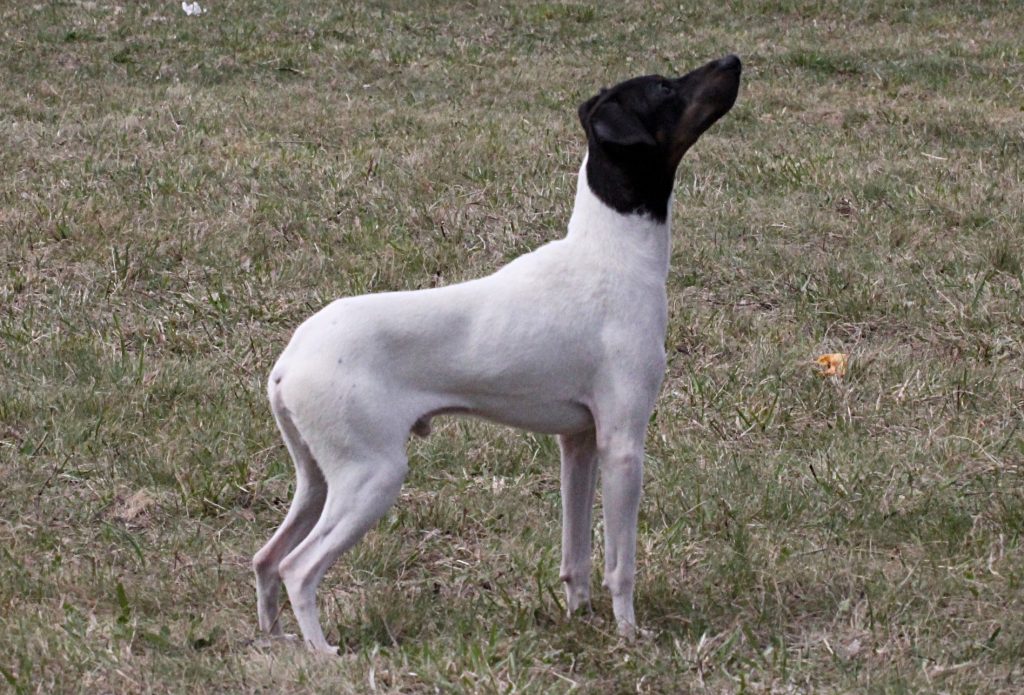
Openness to Strangers
Japanese Terriers are known for their friendly and welcoming nature towards strangers. They are a breed that is always eager to meet new people and make new friends. This trait is particularly evident in their behaviour towards visitors to their home, where they will often greet them with wagging tails and excited barks. Japanese Terriers are also known for their sociable nature when out and about, often approaching strangers with a curious and friendly demeanour. This openness to strangers is a key characteristic of the breed and is one of the reasons why they make such great family pets.
Despite their small size, Japanese Terriers are known for their confident and outgoing personalities. They are not a breed that is easily intimidated and are often described as being fearless in the face of new experiences. This trait is particularly evident when it comes to meeting new people, as Japanese Terriers are not shy about approaching strangers and making their presence known. This confidence and openness to strangers is a key part of the breed’s personality and is one of the reasons why they are so popular with dog owners around the world. Whether at home or out and about, Japanese Terriers are always eager to make new friends and explore new experiences.
Playfulness Level
The Japanese Terrier is a highly energetic and playful breed of dog. They are known for their lively and mischievous nature, making them a popular choice for families with children. Their playful demeanor is often accompanied by a strong sense of loyalty and affection towards their owners, making them a beloved companion for many.
Despite their small size, the Japanese Terrier is a highly active breed that requires plenty of exercise and mental stimulation. They enjoy playing games and participating in activities such as agility training, flyball, and obedience competitions. Their playful nature also makes them a great choice for households with other pets, as they are known to get along well with other animals. Overall, the Japanese Terrier is a fun-loving and lively breed that brings joy and entertainment to their owners.
Suitability as a Pet for Children
Japanese Terriers have a lively and affectionate personality, making them a great companion for children. They are known for their loyalty and love to be around their owners. They are also intelligent and easy to train, which makes them a good choice for families with children who want to teach their pet new tricks. Japanese Terriers are also low-maintenance dogs, requiring only moderate exercise and grooming. They are small in size, which makes them suitable for families living in apartments or with limited outdoor space. Overall, Japanese Terriers can make a great pet for children who are looking for a loyal and affectionate companion.
Exercise Needs
Japanese Terriers require a moderate amount of exercise to maintain their physical and mental health. As an active breed, they enjoy daily walks and playtime in a secure, fenced area. A minimum of 30 minutes of exercise per day is recommended, but they will happily engage in more vigorous activities such as running, hiking, and agility training. It is important to note that Japanese Terriers have a high prey drive and should always be kept on a leash or in a secure area to prevent them from chasing after small animals.
In addition to physical exercise, Japanese Terriers also benefit from mental stimulation. They are intelligent dogs that enjoy learning new tricks and participating in obedience training. Puzzle toys and interactive games can also provide mental stimulation and prevent boredom. It is important to provide a variety of activities to keep them engaged and prevent destructive behavior. Japanese Terriers thrive in homes with active owners who can provide them with the exercise and mental stimulation they need to live a happy and healthy life.
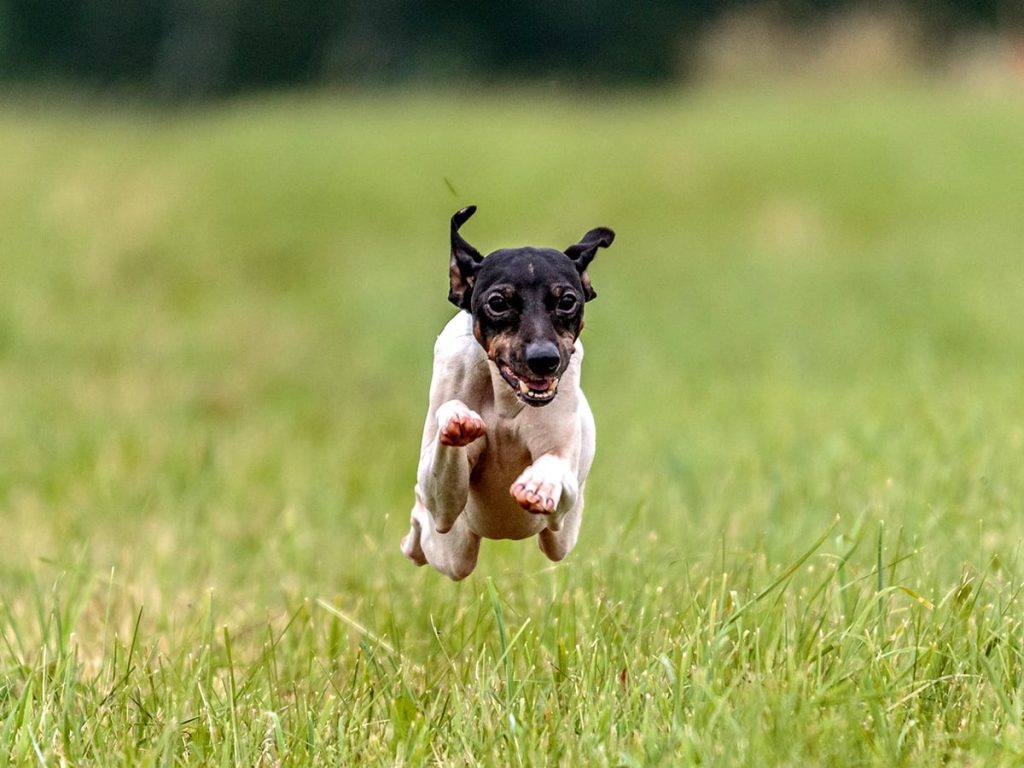
Suitability for a Multi-Pet Family
Japanese Terriers have been known to coexist peacefully with other pets in the household. They are generally friendly and sociable, and can adapt well to living with other animals such as cats or rabbits. However, as with any breed, it is important to introduce them to other pets slowly and carefully to ensure a positive relationship. Additionally, it is important to supervise interactions between pets to prevent any potential conflicts.
Housing Requirements
Japanese Terriers require a living space that is suitable for their size and energy levels. They are an active breed that enjoys playing and running around, so it is important that they have enough space to do so. A house with a garden or yard would be ideal for them to run around in and burn off their energy. The garden should be securely fenced to prevent them from escaping and getting lost. Additionally, they should have access to a comfortable and warm indoor space where they can rest and sleep. The indoor space should be well-ventilated and free from any hazards that could harm the dog.
In terms of feeding, Japanese Terriers require a balanced diet that meets their nutritional needs. They should be fed a high-quality dog food that is appropriate for their age, size, and activity level. It is important to avoid overfeeding them as they are prone to obesity, which can lead to health problems. Fresh water should be available to them at all times, and their food and water bowls should be cleaned regularly to prevent the growth of bacteria. Additionally, they should be taken for regular walks and given plenty of opportunities to exercise to maintain their physical and mental health.
Summary
The Japanese Terrier is a lively and affectionate companion that can make a great pet for those who are willing to provide them with plenty of exercise and attention. They are known for their loyalty and intelligence, and can be trained to perform a variety of tasks. However, they may not be suitable for households with very young children or other pets, as they can be quite energetic and may not always get along well with others. Overall, the Japanese Terrier can be a wonderful addition to the right family, but it is important to carefully consider their needs and temperament before bringing one home.
Japanese Terrier Dog FAQS
Yes, Japanese Terriers are intelligent and eager to please, making them relatively easy to train.
Yes, Japanese Terriers are known to be good with children and make great family pets.
Yes, Japanese Terriers are small and adaptable, making them suitable for apartment living.
Japanese Terriers are generally healthy, but they may be prone to certain health issues such as patellar luxation and allergies.
No, Japanese Terriers have a short and smooth coat that does not shed excessively.
Japanese Terriers require moderate exercise, such as daily walks and playtime, to stay healthy and happy.
Japanese Terriers only require occasional brushing and bathing to maintain their coat.
A Japanese Terrier can grow up to 33 centimeters in height.
The average weight of a Japanese Terrier is between 2.5 to 4.5 kilograms.
The average lifespan of a Japanese Terrier is between 12 to 15 years.
